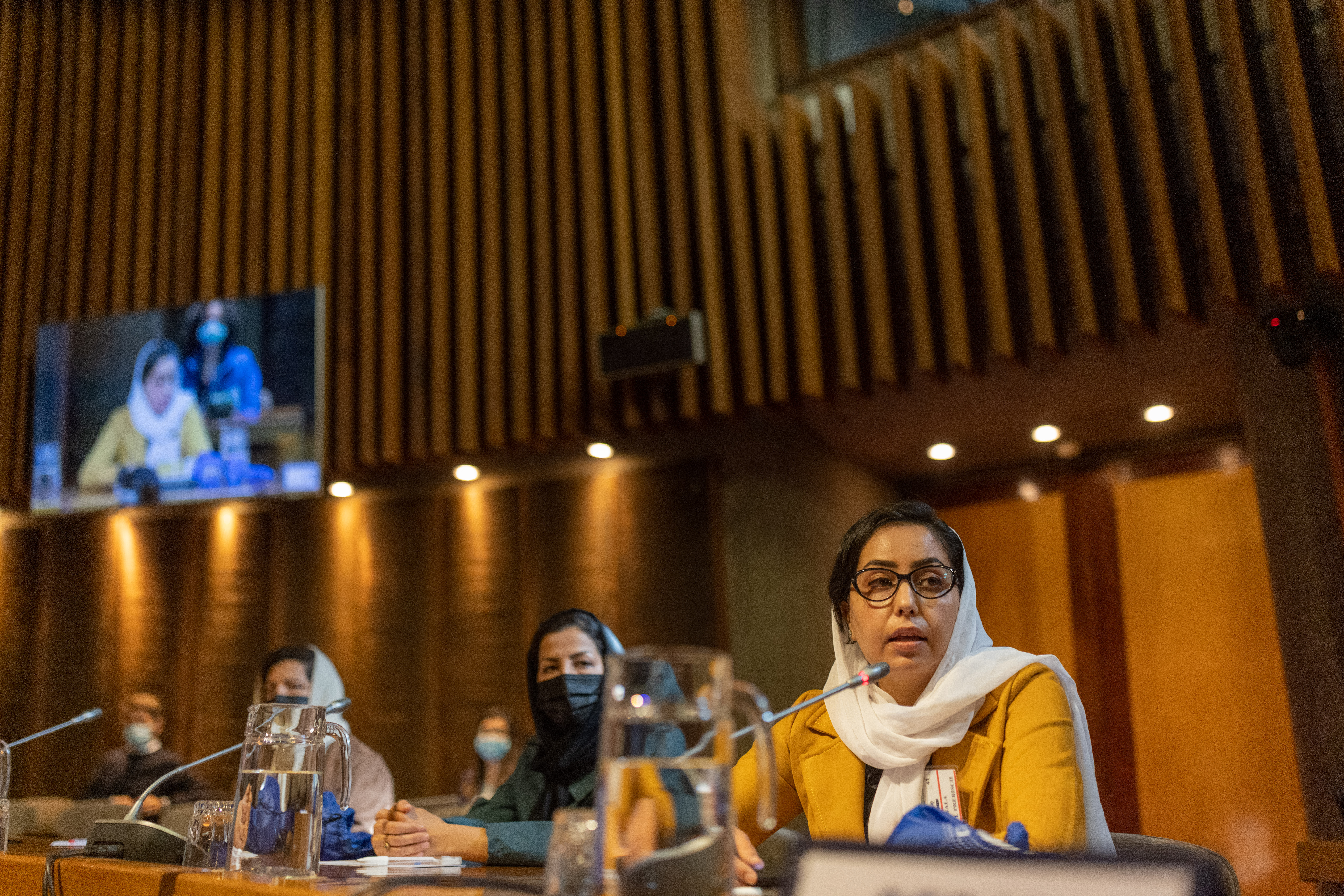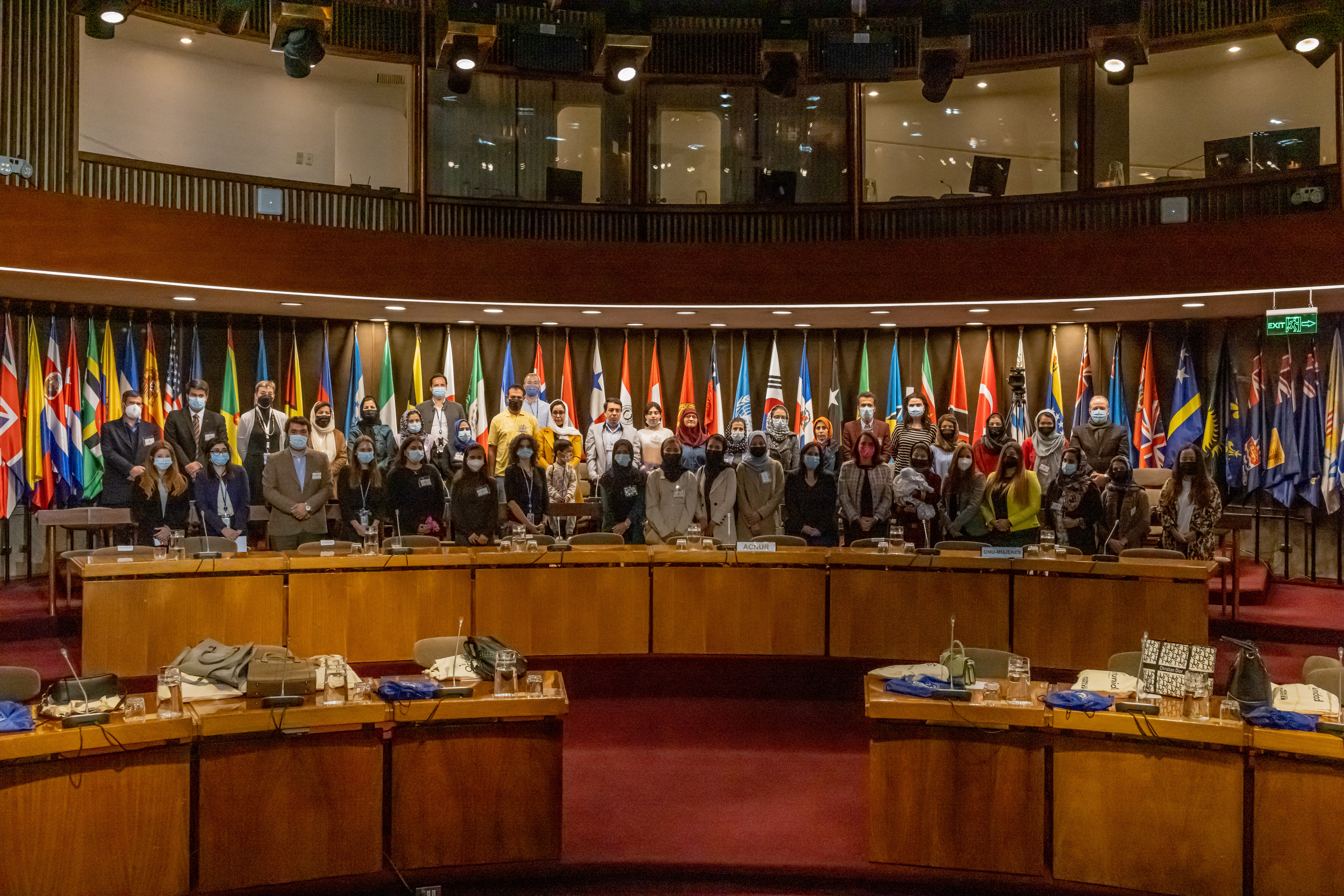UN Women promotes an inter-agency cooperation initiative for the economic empowerment of migrant and refugee women from Afghanistan in Chile
Date:
The Second Chance Education programme (Tu Oportunidad) provides training tools for women's autonomy and economic empowerment and promotes their social reintegration in the country.

UN Women, in the framework of the Second Chance Education programme (Tu Oportunidad), in collaboration with the United Nations High Commissioner for Refugees (UNHCR), the Economic Commission for Latin America and the Caribbean (ECLAC), the Afghan-Chilean Cultural Institute Foundation and the Ascend Athletics Foundation presented an initiative to promote economic opportunities and support the social and cultural integration of women refugees and migrants from Afghanistan.
Spanish courses, advice on legal and migration issues, economic empowerment through employment and business training, as well as the delivery of tablets for the development of online training courses are part of the actions developed in the framework of this inter-agency cooperation of humanitarian response with a gender perspective for refugee and migrant women in Chile.
The women shared their stories and expectations of their new life in Chile during the meeting. One of them was Haidari Moshala, who, regarding this initiative, said: "I see in this possibility with UN Women a door that opens to strengthen us and have a better reintegration into society. This language course will allow us to develop in the country, solve difficulties in my daily life due to the language barrier, and in the economic aspect, find a job that is convenient for me. These are my expectations for this course".
The ceremony was attended by María Inés Salamanca, UN Women Chile's programme coordinator; Raúl García-Buchaca, ECLAC assistant executive secretary for Program Administration and Analysis; Rebeca Cenalmor-Rejas, UNHCR representative in Chile; Safer Habibi, in charge of external affairs at the Afghan-Chilean Culture Institute Foundation; and Susana Casas, executive coordinator of Ascend Athletic Chile.

"UN Women is committed to contributing to the integration of women refugees from Afghanistan through the development of initiatives that support women who have been displaced by difficult situations in their country of origin and give them the tools to enhance their economic autonomy, in addition to exercising their rights fully and thus promote effective socio-cultural inclusion," said Maria Inés Salamanca of UN Women in Chile.
Regarding this initiative, Rebeca Cenalmor-Rejas of UNHCR in Chile said: "We are pleased to join this innovative inter-agency project that also brings together various organizations. Our agency works to support the efforts of states to provide international protection and strengthen the integration of millions of refugees, displaced persons, asylum seekers, and stateless persons in various countries around the world. We stand in solidarity with Afghan women and their families and are at their disposal to provide comprehensive support to promote social inclusion in the country."
For ECLAC, Raúl García-Buchaca described the inter-agency initiative as "a clear example of the spirit of the United Nations' reform in action, aimed at an effective and efficient execution of our mandates, programs and the delivery of services, through better coordination and cooperation among the entities that make up the System. In addition to the substantive work that we usually carry out under the Division for Gender Affairs leadership, we now have the opportunity to make our infrastructure and capacity to provide services available to those who need them most through concrete actions," he said.
The Second Chance Education programme is a global initiative currently being developed in six countries: Mexico, India, Australia, Cameroon, Jordan and Chile, which aims to promote - at the local, national and global levels - a sustainable system of economic empowerment for women that fosters access to work and entrepreneurship development, while strengthening the support networks of the participants.The programme provides training tools for women's economic autonomy, using information technologies and public-private collaboration. |